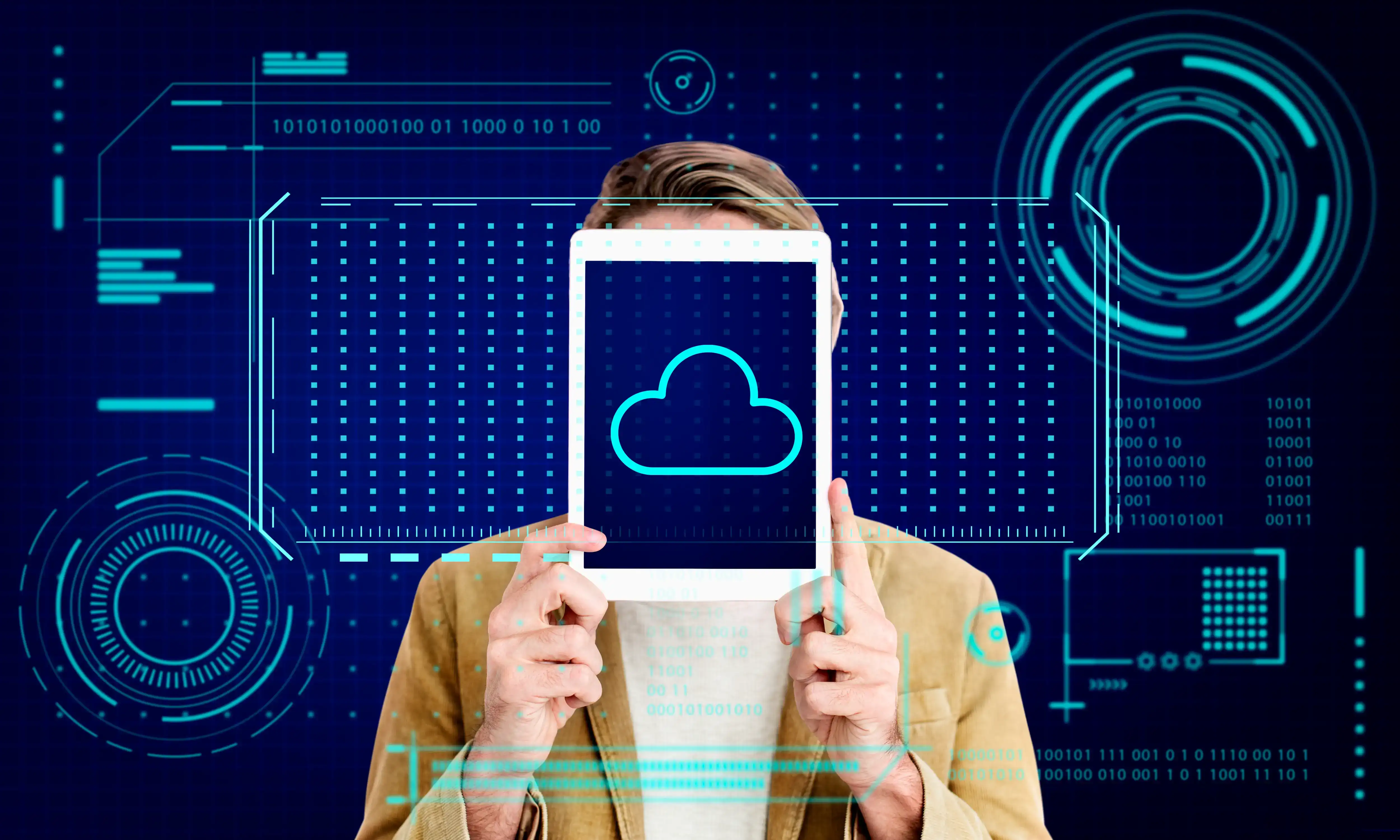Economic Resilience: Prepare for Shocks
Emily Willis

Photo: Economic Resilience: Prepare for Shocks
Economic Resilience: Your Essential Guide to Preparing for Financial Shocks
In an increasingly interconnected and unpredictable world, economic shocks are not just possibilities; they are inevitable realities. From global pandemics and natural disasters to market downturns and technological disruptions, these events can ripple through our lives, impacting everything from job security to daily expenses. The concept of economic resilience has, therefore, moved from a niche topic for policymakers to a critical necessity for every individual and business. It's about more than just surviving a crisis; it's about having the capacity to adapt, recover, and even thrive in the face of adversity.
This comprehensive guide will demystify economic resilience, offering actionable insights and practical strategies to help you, your family, and your business prepare for shocks and navigate financial uncertainties with greater confidence and stability.
Understanding Economic Shocks and Their Impact
Economic shocks are sudden, significant events that disrupt the normal functioning of an economy. They can manifest in various forms, each with unique challenges:
- Financial Market Volatility: Sudden drops in stock markets, currency fluctuations, or credit crunches can erode savings and make borrowing difficult.
- Recessions and Depressions: Periods of significant economic contraction, characterized by job losses, reduced consumer spending, and business failures.
- Supply Chain Disruptions: Events like natural disasters or geopolitical conflicts can halt the flow of goods and services, leading to shortages and price hikes.
- Technological Disruption: Rapid advancements can render entire industries or skill sets obsolete, leading to job displacement.
- Health Crises (e.g., Pandemics): As demonstrated by COVID-19, widespread illness can lead to lockdowns, reduced economic activity, and significant shifts in consumer behavior and mental well-being. The COVID-19 pandemic, for instance, imparted fundamental economic shocks to society, affecting individual health, survival, and mental life, leading to changes in human behavior both in the short and long run.
- Natural Disasters: Earthquakes, floods, and severe storms can devastate local economies, destroying infrastructure and livelihoods.
The impact of these shocks can be profound, affecting individuals through job loss, reduced income, increased stress, and mental health challenges. Businesses can face declining revenues, supply chain breakdowns, and even bankruptcy.
Building Personal Economic Resilience: Fortifying Your Financial Foundation
For individuals and families, financial preparedness is the cornerstone of economic resilience. It involves a multi-faceted approach to safeguard your income, savings, and assets.
1. Establish a Robust Emergency Fund
An emergency fund is your first line of defense against unexpected financial setbacks, such as job loss, medical emergencies, or unforeseen home repairs. Financial experts universally agree on its importance.
- How much to save? The general rule of thumb is to save three to six months' worth of essential living expenses. Some analyses suggest this could be around $35,000 for the average American household, covering about 40% of their annual income.
- Why it's crucial: Having an emergency fund helps you avoid debt, provides peace of mind, and protects your long-term savings from being tapped for short-term crises. Studies show a strong correlation between emergency savings and reduced financial stress.
- Where to keep it? This money should be easily accessible but separate from your daily spending accounts. A high-yield savings account is an ideal choice, offering liquidity and some interest.
2. Aggressively Manage Debt
High-interest debt, such as credit card balances, can quickly become a significant burden during an economic downturn, eroding your financial flexibility.
- Prioritize high-interest debt: Focus on paying down debts with the highest interest rates first.
- Consolidate debt: Consider options like a personal loan with a lower interest rate to simplify payments and reduce overall interest paid.
- Avoid new unnecessary debt: During uncertain times, minimize new borrowing unless absolutely essential.
3. Diversify Income Streams
Relying on a single source of income, typically a primary job, can leave you vulnerable if that income stream is disrupted. Diversified income streams act like multiple pillars supporting your financial house.
- Side hustles: Explore opportunities to leverage your skills or hobbies into additional income, such as freelancing, consulting, or selling crafts.
- Investment income: Over time, strategic investments can generate passive income through dividends, interest, or rental properties.
- Upskill and reskill: Invest in learning new skills that are in demand or can open up alternative career paths, enhancing your employability.
4. Optimize Your Budget and Spending Habits
A clear understanding of your cash flow is paramount for financial stability.
- Track your spending: Use budgeting apps or spreadsheets to monitor where your money goes. This helps identify areas where you can cut back.
- Distinguish needs from wants: In times of uncertainty, prioritize essential expenses (housing, food, utilities, healthcare) over discretionary spending.
- Automate savings: Set up automatic transfers to your emergency fund and investment accounts to ensure consistent progress.
Strengthening Business Economic Resilience: Navigating Market Volatility
Businesses, from small startups to large corporations, also need robust strategies to prepare for shocks and maintain operations through challenging economic climates.
1. Robust Financial Planning and Cash Flow Management
Effective financial planning and cash flow management are vital for business resilience.
- Maintain ample cash reserves: Just like individuals, businesses need a financial cushion. Build reserves to cover operational expenses for several months.
- Scenario planning and stress testing: Regularly analyze how different economic scenarios (e.g., a 20% drop in revenue) would impact your financials and develop contingency plans.
- Flexible budgeting: Move away from rigid annual budgets towards rolling forecasts that can be adjusted based on real-time market conditions.
2. Diversify Revenue Streams and Customer Base
Over-reliance on a single product, service, or customer can be a critical vulnerability. Diversifying revenue streams can lead to increased profitability and stability.
- Expand product/service offerings: Introduce new products or services that cater to different market segments or needs.
- Target new markets: Explore expanding into new geographical areas or customer demographics.
- Reduce customer concentration: Aim to ensure no single customer accounts for an excessively large percentage of your revenue.
3. Strengthen Supply Chains and Operational Flexibility
Vulnerable supply chains can bring operations to a halt during disruptions.
- Diversify suppliers: Avoid relying on a single supplier, especially for critical components. Source from multiple vendors in different regions.
- Localize supply chains: Where feasible, consider local suppliers to reduce dependency on global logistics.
- Increase operational flexibility: Invest in technology and processes that allow for quick pivots, such as remote work capabilities or adaptable production lines.
4. Embrace Technology and Innovation
Technology can be a powerful tool for building economic resilience by enhancing efficiency, predictability, and adaptability.
- Automate processes: Streamline operations to reduce costs and human error.
- Leverage data analytics: Use data to identify trends, predict challenges, and make informed decisions.
- Invest in digital infrastructure: Ensure your business can operate effectively online, especially in scenarios like lockdowns or remote work mandates.
- Foster a culture of innovation: Encourage employees to identify new opportunities and solutions, even during challenging times.
Case Studies in Resilience: Thriving Amidst Turmoil
History is replete with examples of companies that not only survived but thrived during economic downturns.
- Netflix: During the 2008 financial crisis, Netflix, with its subscription-based streaming model, offered an affordable entertainment alternative as consumers cut back on more expensive options. Their adaptability and focus on customer value allowed them to grow significantly.
- Airbnb: Founded in 2008 amidst the Great Recession, Airbnb offered a more affordable alternative to traditional hotels for travelers and a way for homeowners to earn extra income, directly addressing the economic pressures of the time.
- Hewlett-Packard (HP): This tech giant was founded in 1935, during the Great Depression, demonstrating that even severe economic hardship can be a fertile ground for innovation and new ventures.
These examples highlight that resilience isn't just about weathering the storm; it's about identifying new opportunities that arise from changing circumstances and adapting your business model to meet evolving demands.
Strategies for Broader Financial Preparedness
Beyond individual and business-specific actions, a holistic approach to financial preparedness involves continuous learning and strategic thinking.
- Continuous Learning: Stay informed about economic trends, financial news, and emerging risks. Understanding the broader economic landscape can help you anticipate and react more effectively.
- Professional Guidance: Consider consulting financial advisors, business consultants, or legal experts to develop tailored strategies for your unique situation. Their expertise can provide valuable insights and help you navigate complex decisions.
- Community Engagement: Participate in local economic development initiatives or support local businesses. A strong, resilient community can better withstand and recover from shocks.
Conclusion: Cultivating a Mindset of Preparedness
Economic resilience is not a destination but an ongoing journey. It requires proactive planning, continuous adaptation, and a mindset that embraces uncertainty as an opportunity for growth and innovation. By building robust emergency funds, managing debt, diversifying income, and strengthening business operations, individuals and businesses can significantly enhance their ability to prepare for shocks and navigate the complexities of the modern economic landscape.
Remember, the goal is not to predict the next crisis but to be prepared for any crisis. By taking deliberate steps today, you can cultivate a more secure and prosperous future for yourself, your family,
Latest ✨
View AllDemystify the stock market! Our essential guide breaks down complex concepts for beginners, helping you understand smart investing and build wealth with confide...
Emily Willis
The music industry has been transformed by digital distribution, which allows quick access to a vast catalog of music through streaming services and online stores.
Emily Willis
The digital economy is rapidly changing the job market, with trends such as remote work, the gig economy, automation, e-commerce, cybersecurity, digital skills, and changes in traditional industries having significant implications. These trends offer both opportunities and challenges, requiring individuals and organizations to adapt by embracing flexibility, investing in continuous learning, and staying abreast of technological advancements in order to thrive in this evolving landscape.
Emily Willis
The world of international trade is facing disruption due to rising protectionism, geopolitical tensions, technological advancements, shifting consumer preferences, and the rise of e-commerce. This has led to higher prices for consumers, disrupted supply chains, job losses, and reduced economic growth.
Emily Willis
Business
View All
June 9, 2025
Use Customer Feedback to GrowCustomer feedback is a goldmine for business growth. Learn how leveraging insights enhances products, builds loyalty, and keeps you competitive.
Emily Willis

August 5, 2024
Inspiring Leaders Who Can Be Your Role Modelseffective leadership in a constantly changing world and explores the traits and habits of inspiring leaders, both historical and contemporary. It highlights the key lessons from leaders such as Nelson Mandela, Martin Luther King Jr., Jacinda Ardern, Elon Musk, and Malala Yousafzai.
Emily Willis

June 8, 2025
Strategic Planning for Long-Term WinsChart your course to enduring success! This article demystifies strategic planning, offering an actionable framework for long-term wins and sustainable growth.
Emily Willis
Economy
View Allsustainable economic development for developing nations and explores various strategies that can be adopted to achieve this goal. These strategies include investment in renewable energy, promotion of sustainable agriculture, infrastructure development, education and skills development, promotion of green technologies and innovation, enhancing access to healthcare and social services, and policy and governance reform.
Read MoreLooking to save on car insurance? Discover how to get accurate, personalized car insurance quotes online with this comprehensive guide. Fast, easy, and cost-effective.
Read MoreNavigate tomorrow's challenges today. Discover strategies to build resilient global supply chains, ensuring continuity & competitive advantage.
Read MoreEntertainment
View All
August 4, 2024
The Latest Music Trends, Artists Influencing Pop Culture, and How Digital Platforms Facilitate the Distribution of Music GloballyThe music industry is constantly changing due to consumer preferences, technology, and the influence of artists. Digital platforms have revolutionized music creation, distribution, and consumption, leading to genre fusion, the rise of independent artists, and collaborative projects. Influential artists like Billie Eilish, BTS, and Taylor Swift have shaped pop culture globally. Streaming services, social media, and direct-to-fan engagement have transformed music distribution. Digital platforms also promote cultural diversity and inclusivity, expand markets and revenue, and drive technological advancements. The industry is also focusing on sustainability and ethical practices. To succeed in the future, stakeholders must embrace digital transformation and champion inclusivity.
Emily Willis

August 4, 2024
Exploring Virtual Reality (VR) in Entertainment: Future Applications and DevelopmentsVirtual Reality (VR) technology is revolutionizing the entertainment industry by providing immersive and interactive experiences that transform audience interaction with content. VR creates simulated environments that allow users to engage with virtual worlds, characters, and narratives in ways that traditional media cannot.
Emily Willis

July 5, 2025
EVO Fredericksburg ExcitesEVO Fredericksburg transforms local entertainment! Enjoy cutting-edge cinema, bowling, arcade games, and dining all in one premier destination.
Emily Willis
Health
View AllQuality sleep is essential for overall health and well-being, impacting physical, cognitive and emotional functioning. Lack of quality sleep can lead to a variety of health issues, including weakened immune function, heart problems, weight gain and cognitive impairment.
Emily Willis
Princess Kate's health journey revealed: From surgery to a shocking cancer diagnosis & ongoing recovery. Get the full, respectful update here.
Emily Willis
significance of mental health awareness in today's fast-paced world. It discusses the importance of understanding mental health, breaking down stigma, and promoting positive mental health practices.
Emily Willis
Trending 🔥
View All
1
2
3
4
5
6
7
8
9
10
Technology
View All
August 4, 2024
Latest Trends in Mobile Application Development
latest trends in mobile application development for 2024. These trends include the integration of 5G technology, artificial intelligence and machine learning, Internet of Things (IoT), augmented reality (AR) and virtual reality (VR), cross-platform development, mobile wallets and payment gateways, progressive web apps (PWAs), enhanced app security, voice search and integration, and sustainability and green mobile apps.

August 4, 2024
How Flying Qudits Promise a Revolution in Quantum Communication
communication, flying qudits are poised to revolutionize the way we transmit and process information. With the potential for unbreakable encryption, blazing-fast quantum internet, and advancements in various fields, the future of flying qudits looks promising. While there are challenges to overcome, researchers are actively working on refining the technology. Overall, flying qudits offer a glimpse into a quantum future that is faster, safer, and filled with endless possibilities.

August 5, 2024
Tips for Implementing Cloud Computing Safely and Efficiently
Cloud computing is essential for modern businesses, offering cost savings, scalability, and improved collaboration. Implementing cloud computing requires careful planning to ensure safety and efficiency. Tips for safe and efficient implementation include conducting a needs assessment, choosing the right cloud service model, prioritizing security, planning for data migration, optimizing costs, training your team, implementing backup and recovery solutions, monitoring performance, planning for scalability, and staying updated with industry trends.

August 5, 2024
The Future of Cloud Computing and Its Impact on the Business World
Cloud computing has revolutionized business operations with benefits such as cost savings, scalability, and flexibility. The future of cloud computing includes trends such as edge computing, hybrid and multi-cloud strategies, AI and ML integration, serverless computing, quantum computing, enhanced security measures, and sustainability initiatives.




















